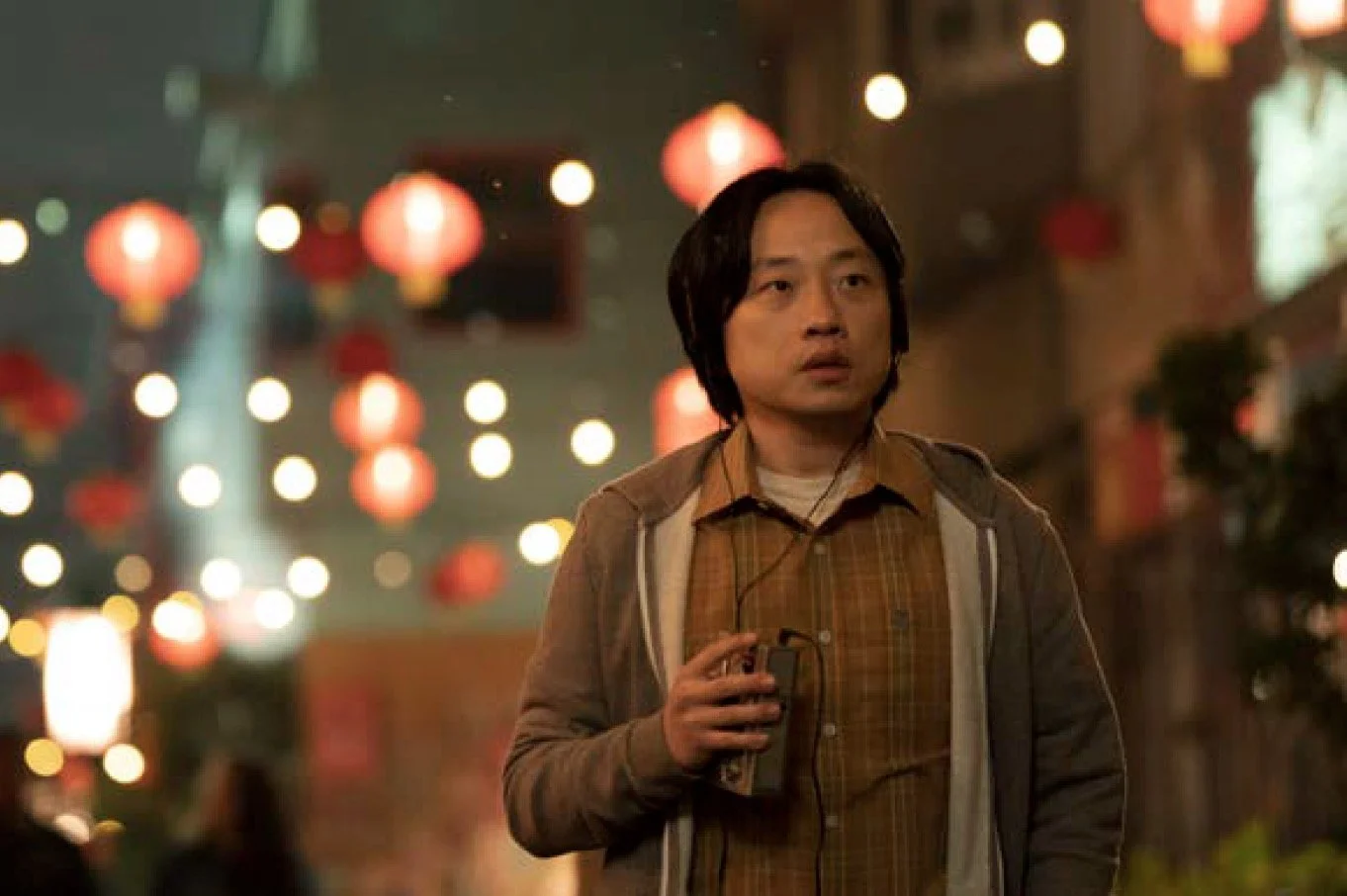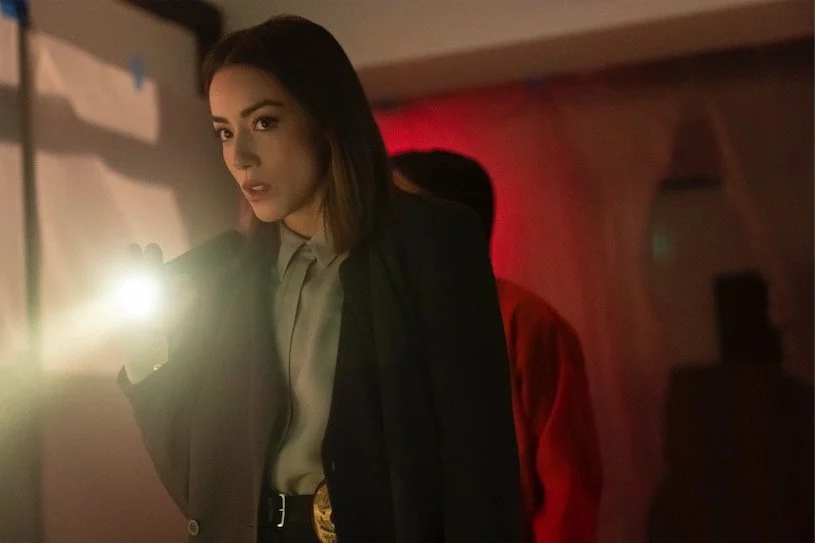Interior Chinatown challenges how Asians are viewed in Hollywood and the world
“If you keep letting them tell you that you are [a supporting character], eventually you’ll start to believe that you are.”
Yang as Willis and Chloe Bennet as Lana in Interior Chinatown. Photo: Hulu.
In the new Hulu series Interior Chinatown, everybody is siloed into their place.
The workers in Chinatown are invisible to everyone else and the cops go along ignoring the residents of Chinatown until tragedy strikes. It’s not until people begin to break out of their pre-prescribed roles that things start to change, and the invisible begin to be seen by those who have always overlooked them.
Based on the novel by Charles Yu of the same name, Interior Chinatown is a meta mystery show that follows Willis Wu (Jimmy O. Yang), a waiter at his uncle’s (Archie Kao) restaurant in Chinatown. Willis, like his neighbours, are background actors in Black and White, a parody Law and Order-esque procedural starring officers Sarah Green (Lisa Gilroy) and Miles Turner (Sulivan Jones). While Willis dreams of becoming a Kung Fu guy like his missing older brother (Chris Pang), he’s stuck in a supporting role, watching the world leave Chinatown behind with his friend and coworker Fatty Choi (Ronny Chieng).
But when Willis witnesses a kidnapping, he’s thrust into a new plotline and breaks out of being a background character and into the main cast. He soon meets detective Lana Lee (Chloe Bennet), the police department’s “Chinatown Expert” and “Sidekick.” The two of them begin to investigate the kidnapping and uncover how this string of crimes in Chinatown are connected to Willis’ brother’s disappearance years ago.
As the series progresses, Willis sheds his background actor identity, playing into different parts of himself and inhabiting other stereotypical roles (graduating from Generic Asian Man to Delivery Guy to Tech guy and so on) and learning more about himself, his family and his community. With each new role Willis plays, he unlocks a new place in the world where he “belongs.”
At its core, Interior Chinatown is about breaking out of your role and rejecting the paradigm of “background” and “main” character. Willis’ trajectory mimics that of so many Asian performers in Hollywood: building a steady resume of bit roles until, if you’re lucky, you ascend to main character status. But playing into this background/leading dichotomy is a trap: Willis has to learn that if he lets others define him by roles like Generic Asian Man, then that’s all he’ll be.
Yang as Willis in Interior Chinatown. Photo: Hulu
Kao, who plays the restaurant owner and Willis’ uncle, tells RepresentASIAN Project that he took a break from Hollywood precisely because of this dynamic. “After the last procedural drama I did, Chicago PD, I moved to Asia and worked exclusively in the Chinese market for like five and a half years,” Kao says. “The reason I left was because I spent my entire career in Hollywood just playing the supporting secondary characters. And I felt like, if you keep letting them tell you that you are [a supporting character], eventually you’ll start to believe that you are.”
Many of the other actors in Interior Chinatown have had similar experiences. Yang, for whom Interior Chinatown is his first leading role, says that Willis’ journey cycling through different parts, mirrored his own career. “I’ve been every single number on the call sheet, so it’s pretty special to finally be number one,” he says.
Yu, who wrote the novel and also co-created the series alongside executive producer Taika Waititi, says that Interior Chinatown is like “the world’s weirdest cop show.” On its surface, it’s a mystery with a central plot driving it. But deeper within are subversions and surprises, and an exploration of what it means to cast off stereotypes — especially as Asian Americans.
Yu’s novel, and its exploration of the Asian American experience, drew Bennet, best known for her role in Marvel’s Agents of S.H.I.E.L.D., to the project. “When I read the book, I felt like someone scooped my brain out,” she recalls. “Charlie [Yu] was able to write about the Asian American experience in such a niche, funny and brilliant way and I felt very seen for the first time in a long time.”
Bennet as Lana in Interior Chinatown. Photo: Hulu.
Ultimately, Interior Chinatown is a great showcase for Asian actors we already love so much, and a challenging reflection on how Asians are viewed in Hollywood and in the world at large. In a world where people like Willis and Fatty languish in the background, supporting the exploits of Black and White, it can be easy to feel like it’s impossible to step out of your role. As Willis says in the first episode: “in Chinatown, nothing ever changes.”
But just as Willis moves through different roles, and unlocks worlds he didn’t know he could inhabit, he learns more and more that it’s not about the role you’re born into. It’s who you’re willing to become.
‘Interior Chinatown’ is now streaming on Hulu in the U.S. and Disney+ everywhere else.



